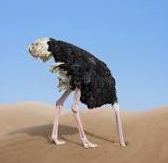When I studied "Evolution" it was not widely accepted but I believe in NEITHER.
When was that? In 1971? Perhaps it's time to update your knowledge a bit.
I'm not sure what this means.
Uhu. Someone who has a basic understanding of evolution, would know what it means.
I believe it is where I quit reading the first time because I don't believe in PE anyway.
"I have no clue what it means or how it works or what it is and this text explaining it is too hard to understand for me, but I don't believe it anyway so why bother trying to understand it"
~cladking logic
This is why nobody takes you seriously.
Why would I even bother with the rest of your post if this is the mentality you bring to the table?
Any discussion with a closed mind like yours is utterly futile anyway.
I disagree. There is no selection, no population, and no starting and stopping of anything related to change in species.
You can disagree all you want, but it's exactly what happens in both GA's as well as in the real world.
Everything is always at "optimum" because all things affect all other things all the time.
No and doesn't follow.
If you want to define a food shortage as "non-optimum"
Makes no sense. This is one of those things that you say only because you have no clue and refuse to learn.
then you are overlooking the other life forms that benefit from it.
Ow, so you are saying that there are other life forms that are more successful then others at gathering this limited resource known as "food", ha? How about that.

I have no clue what this means.
Uhu. But you don't believe it anyway, right?

There is neither such a thing as Evolution nor paths to it.
There is no such thing as a better species, better individual, or better pathway.
These are all mental gymnastics and circular reasoning.
If you're trying to say stable conditions lead to stable populations and little change in species then I agree.
Hallelulia.
Now, what will happen to stable populations and rate of change in those species when the stable conditions become unstable and change to something else, with different / altered selection pressures?
Let's try an easy one....
Polar bears are white. They are adapted for hunting against the white background of snow.
Now suppose that over the course of a few dozen generations, this snow melts and the grey/brown background comes through and overtakes the white snowy background.
What will happen to the color of Polar bears, assuming they don't go extinct?
What polar bear will be likely more successful in the hunt? The one that stays completely white? Or the one that has white fur with some grey/brown patches to match the new background?
How would you rate the overall fitness (= quantitative measure of reproductive success) of these 2 polar bears?
Which one will be more likely successful in survival and eventual reproduction?
Change in species isn't about "beneficial results", it's about the nature of life to fit its niche as well

So change that makes an individual "fit its niche" better, isn't about "beneficial results"?
You really tip your hand here since your term suggests the most fit are most worthy of being fit.
I didn't say anything even remotely close to that.
This is so blatantly obvious I'm surprised Darwin didn't come up with it.
IOW: you believe in PE.

Now I read your little diatribe why not answer my questions and address my points?
Which ones?
And remember, if your points and questions are rooted in falsehoods and / or ignorance, my response will be to point those out.



